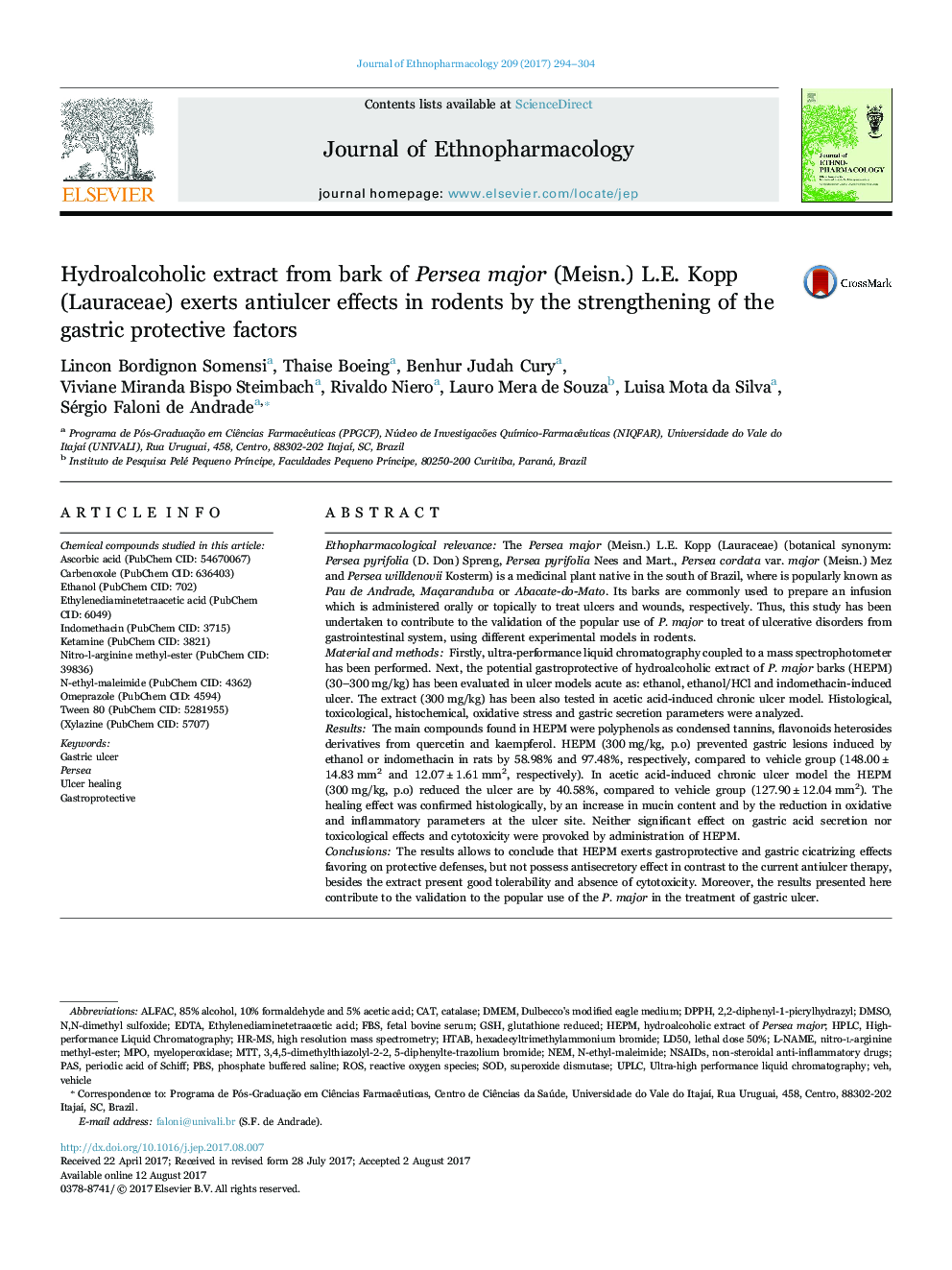| Article ID | Journal | Published Year | Pages | File Type |
|---|---|---|---|---|
| 5555994 | Journal of Ethnopharmacology | 2017 | 11 Pages |
Ethopharmacological relevanceThe Persea major (Meisn.) L.E. Kopp (Lauraceae) (botanical synonym: Persea pyrifolia (D. Don) Spreng, Persea pyrifolia Nees and Mart., Persea cordata var. major (Meisn.) Mez and Persea willdenovii Kosterm) is a medicinal plant native in the south of Brazil, where is popularly known as Pau de Andrade, Maçaranduba or Abacate-do-Mato. Its barks are commonly used to prepare an infusion which is administered orally or topically to treat ulcers and wounds, respectively. Thus, this study has been undertaken to contribute to the validation of the popular use of P. major to treat of ulcerative disorders from gastrointestinal system, using different experimental models in rodents.Material and methodsFirstly, ultra-performance liquid chromatography coupled to a mass spectrophotometer has been performed. Next, the potential gastroprotective of hydroalcoholic extract of P. major barks (HEPM) (30-300 mg/kg) has been evaluated in ulcer models acute as: ethanol, ethanol/HCl and indomethacin-induced ulcer. The extract (300 mg/kg) has been also tested in acetic acid-induced chronic ulcer model. Histological, toxicological, histochemical, oxidative stress and gastric secretion parameters were analyzed.ResultsThe main compounds found in HEPM were polyphenols as condensed tannins, flavonoids heterosides derivatives from quercetin and kaempferol. HEPM (300 mg/kg, p.o) prevented gastric lesions induced by ethanol or indomethacin in rats by 58.98% and 97.48%, respectively, compared to vehicle group (148.00±14.83 mm2 and 12.07±1.61 mm2, respectively). In acetic acid-induced chronic ulcer model the HEPM (300 mg/kg, p.o) reduced the ulcer are by 40.58%, compared to vehicle group (127.90±12.04 mm2). The healing effect was confirmed histologically, by an increase in mucin content and by the reduction in oxidative and inflammatory parameters at the ulcer site. Neither significant effect on gastric acid secretion nor toxicological effects and cytotoxicity were provoked by administration of HEPM.ConclusionsThe results allows to conclude that HEPM exerts gastroprotective and gastric cicatrizing effects favoring on protective defenses, but not possess antisecretory effect in contrast to the current antiulcer therapy, besides the extract present good tolerability and absence of cytotoxicity. Moreover, the results presented here contribute to the validation to the popular use of the P. major in the treatment of gastric ulcer.
Graphical abstractDownload high-res image (147KB)Download full-size image
